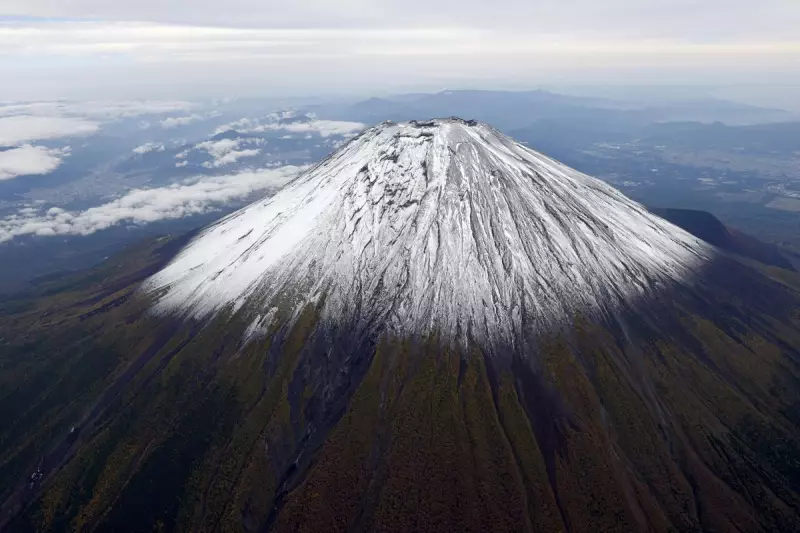
Japan's most iconic natural landmark, Mount Fuji, is experiencing an unprecedented early snowmelt that has left its famous white crown completely vanished months ahead of schedule. The stunning transformation has left the sacred mountain looking unusually barren, with its volcanic rock fully exposed to the spring sun.
Local residents and climate experts are sounding alarms as this represents one of the earliest snow disappearances in living memory. The mountain's snow cap, which typically persists well into summer months, has completely melted away by late April—a phenomenon that normally doesn't occur until July or August.
Record-breaking temperatures fuel concern
Meteorological data reveals that Japan has been experiencing significantly warmer than average conditions throughout the spring season. Multiple weather stations across the region have recorded temperatures soaring 2-3 degrees Celsius above seasonal norms, creating perfect conditions for rapid snowmelt.
The early disappearance of Fuji's snow cap follows an already concerning trend of diminishing winter snowfall across Japan. Scientists note that this pattern aligns with broader climate change predictions for the region, where rising temperatures are expected to dramatically alter seasonal weather patterns.
Tourism and cultural implications
The transformation has significant implications for Japan's tourism industry, as millions of visitors flock annually to witness the mountain's majestic snow-capped appearance. Local businesses that rely on Fuji-related tourism are expressing concern about the potential long-term impact on visitor numbers.
Beyond tourism, the snow's early departure carries cultural and spiritual significance. Mount Fuji has long been revered in Japanese culture as a sacred symbol, with its white peak featuring prominently in art, literature, and religious practices for centuries.
Environmental warning signs
Environmental researchers are treating this development as a clear warning signal about the accelerating pace of climate change in the region. The rapid snowmelt could have downstream effects on water resources, local ecosystems, and agricultural patterns throughout surrounding prefectures.
As climate scientists continue to monitor the situation, the bare peak of Mount Fuji stands as a visible reminder of the urgent environmental challenges facing Japan and the wider global community.





